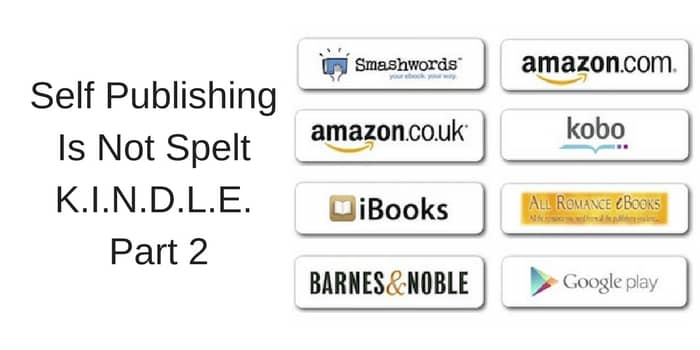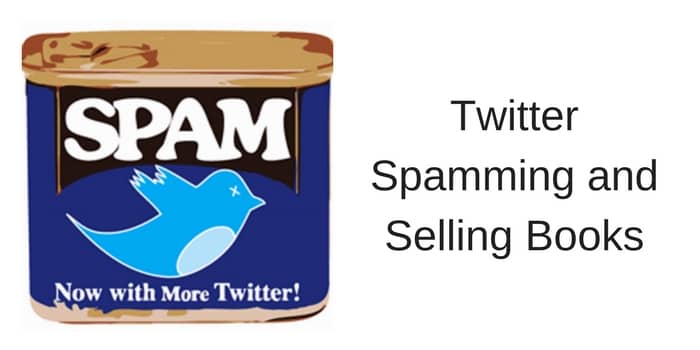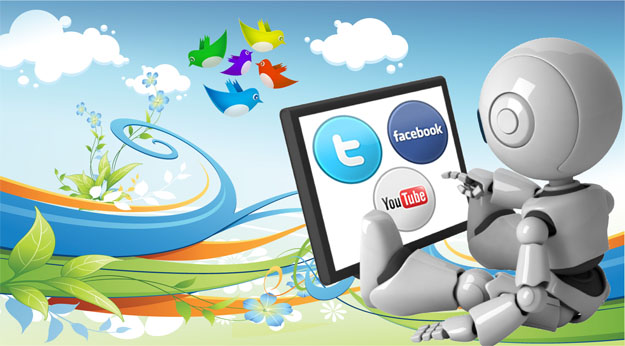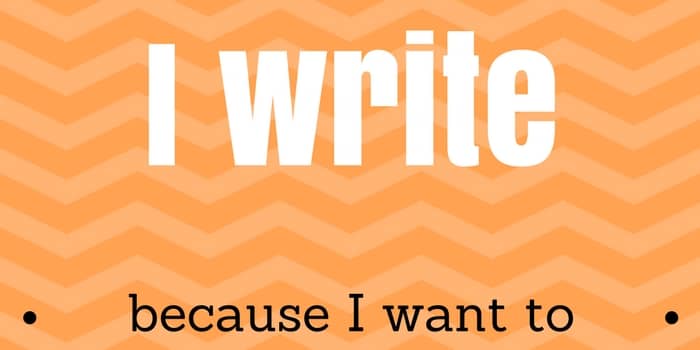 “I don’t sell many books on Smashwords.”
“I don’t sell many books on Smashwords.”
I read this comment over and over again from self-published authors and it drives me crazy every time I read it. It should read, “I don’t sell many books on Apple, B&N orKobo because I can’t be bothered promoting my books anywhere else other than Kindle.”
Smashwords is a distributor of ebooks, but after self-published authors add their books to the Smashwords Premium Catalogue, they seem to expect, as if by some kind of magic, that their books will sell. While lazily filling their social media feeds with links to their books on Kindle, most Indie authors can’t be bothered, or don’t even know how to promote their books on other retailers.
Simple question. How many know how to create a link to their books on the Apple iBooks Store? For those who don’t know, perhaps a look at Apple’s Link Builder might help.
Second question. What percentage of self-published authors’ book promotion is linked to Amazon?
I’ll answer this question from my experience. I run a book promotion site for self-published authors and each submission has four optional links available for each book. Of the last 200 books that have been published on the site, only one included a link to Smashwords. Two included a link to B&N and exactly zero included a link to Apple. Of course, all 200 included a link to Amazon.
Third question. Do self-published authors themselves buy ebooks from Smashwords? Or Apple? Or Kobo? Or only, by habit, from Kindle?
Fourth question. There were 43,000 free ebooks on Kindle on 27th December, all being offered by KDPS enrolled authors. But do any authors who are not in KDPS think about offering a free book through Smashwords? It’s easy and comes with no strings attached. Just change the price to free for as long as you like.
Fifth question. What do self-published authors expect from Smashwords? Miracles?
Yes. I agree. A lot of self-published authors don’t sell many books on Smashwords or its distribution channels. But it’s easy to understand why, isn’t it?




It’s kind of a self-fulfilling thing though, isn’t it? Authors sell more on Amazon, making it the best place to invest their promo money. Hence they get higher in the rankings and thus easier to find for readers, generating more book sales. Etc etc etc. I don’t want all my eggs in one basket, but I also have been in business a long time and know you have to follow the money.
Until yesterday, I had 2 of my 3 books on KDPS (now just one), so obviously that limited me. But I’ve seen no sales on my 3rd book from B&N or Kobo, although it’s doing increasingly well on Amazon and I have posted links to both sites. Apple… we’ll see. I had such a horrible experience uploading the first book, and it took forever for them to approve it – by then I’d put it on KDPS, so I had to take it off sale. I just put that back in the store yesterday and added the 2nd (who knows how long until it’s up and running?!). Normally I love Apple so I found it pretty discouraging. I’m hoping to get these two on Smashwords by next week, and we’ll see how it goes.
I agree Jennings that it’s self-fulfilling. I’ve been in business a long time too, and one thing I’ve learned is never to put all my eggs in one basket. Building new markets and clients is always work in progress because things can change.
I was in KDPS at the beginning and it was fantastic. My sales were exceptional. But after a few months, Amazon changed their algorithms and have done so at least twice since and diminished the benefits completely. It’s just a free ebook scrum now. However, I have kept my books on KDP of course. But even just a few sales from other retailers is still more sales.
I originally did KDPS with my first book (published last July) because I knew I had the sequel coming out in October and I wanted to drive sales there. (That plan did work wonderfully.) As a new author, that seemed prudent. I never intended to do it for more than one 90 day period, but got sucked in with their bonus money for Dec-Feb. My second book, however, I didn’t renew, and it came off yesterday. I’m planning to get into as many distribution channels as possible, but I have much lower expectations for those than Amazon, at least as things stand now. But I will be promoting ALL channels!
I have a YA sci-fi fantasy trilogy coming out starting in Feb, and that’s a new genre for me. I will probably do the KDPS route again, since books 2 and 3 will be coming out in April and June. But again, just for 1 cycle. Even if it’s not as good for sales as it used to be, it does work as a loss leader in my experience.
I think in the short term, Kindle is going to remain the best outlet, but I really believe that Apple are going to make big gains in the next 12 months, so I would like to be there now, rather than ‘swim with the fish’ later.
The other possibility that has received some credibility is that Goodreads will make a move into ebook retailing in the coming year. And as Goodreads do not get on at all well with Amazon, my guess is that Smashwords could well be the distributor.
Gotcha. That makes sense although I suspect that’ll change in the coming years, too.
I’m also going as worldwide as possible. I read a great book by Dean Wesley Smith on How to Think Like a Publisher, and am working to take his advice for both my books and my husband’s. Nothing to lose, anyway, right?
I read similar advice from Mark Coker about thinking like a publisher.
I don’t think too many publishers work at giving away all their books. lol :)
No. He actually says to price at $6.99 for a 300+ pg trade paperback. I’ve been priced at $.499 and my sales are more than doubling each month. Not sure about raising it at the moment. But I do think you have to treat it like a business or not bother!
But is it not a case of which is more well known? If I ask a bunch of people what the Kindle is, most of them will know what I am talking about. As them about Smashwords and chances are their faces will go blank and they will look at you funny afterwards.
I will be honest, I only found out about Smashwords when an author directed me to her books there…
That’s exactly my point Ekisjan. An author directed you there, so now you know about it. At least you have a new choice. Smashwords though, are not a high profile retailer. Their main role is as an ebook distributor.
But I’m sure you had heard of Apple, Kobo, Sony and Barnes and Noble before, which are all supplied by Smashwords.
As a nonUS author, I’ve just tried today to sign up with Amazon’s createspace. Bummer… the payment options are checks and bank deposits. Maybe I’m an idiot, but I didn’t find any paypal option. And I definitely don’t plan to do all the bureaucracy with the IRS forms and what not. Therefore, I’ll have to wait till I get into Smashwords’ 1000 seller club in order to put my future title in the Amazon store. At the end of the day, I’m not trying to get my story read by “certain citizens”, but by all those who understand english, and who are interested in reading the story. It will be easier. I’ll manage everything from one dashboard, and I can cope with delayed sales/downloads reports.
It’s a pain being a non-US author Serban. I really know how frustrating it is. The reason Amazon don’t have a Paypal option is because Paypal is owned by Ebay, Amazon’s direct competitor. So it will never happen.
But that doesn’t mean Amazon can’t pay non-US authors by EFT. But regrettably, they refuse to offer this logical option. For the life of me I don’t understand why, as the cost of preparing and mailing cheques is just crazy. Then on top of that, there are bank fees to process a cheque, so I lose at least $20 on each cheque I receive. It is the same process for me with Amazon UK and Createspace. All Amazon, but three separate cheques, and three losses of $20.
But my sales on Apple and B&N etc via Smashwords are paid via Paypal. In one consolidated payment. So much easier.
You are completely right about the promo thing, Derek. I’m not an author myself, but I follow a lot of them on Twitter, many of them self-published (,including you). If they ever do any promo for their books anywhere else than Kindle, it’s at best very sporadic, and mostly only on the day they put their books up for sale elsewhere.
In fact I find it a bit funny when they say they get more out of Amazon, and sell 80-90% of their books there. They do 95-99.9% of their promo for their Kindle books, so it looks to me like actually you get more sales from other outlest compared to the amount of promo you do.
I’d very much like to see how the sales on other outlets would look like if the authors switched the promo around to 95% for other sites than Amazon.
As authors you also got to remember that many readers don’t like Amazon, and won’t shop there. And from what I have seen the “resistance” to Amazon is growing. -Both among readers and authors.
The resistance to the 2,000 lb gorilla you mention is easy to work out Weirmage. I refuse to buy ebooks on Amazon now because for one, I’m charged $3.64 for a $2.99 ebook because Switzerland doesn’t have a Kindle Store. Two, because I can’t lend the book to my wife and third, because Amazon decided to delete genuine reviews from my books.
And this is from an author who quite likes selling ebooks, and buying them. But getting ripped off, tends to colour one’s opinion.
Yep, I live in Norway, and Amazon still adds $2 on most e-books. That’s $2 that neither authors or publisher see any share of. And it still says “free delivery” on the buy pages.
And for self-published authors, it’s a rip-off when they actally get their percentage of $2 less than Amazon sells their books for.
Very true, and very much the equivalent of musicians always linking to their music in iTunes. I’m not an iTunes user, so I always have to hunt around for alternate links. Most people aren’t going to do that. Tyranny of the default, as it’s known.
We all seem to be living in ‘Walled Gardens’ now Keith. All happy little prisoners.
@Keith Gapinski
“Tyranny of the default,” Spot on, sir.
@ Derek Haines
“Think of how stupid the average person is, and realize half of them are stupider than that.” I think that this quote from G. Carlin applies perfectly for this situation, in which the exclusive Kindle authors (Amazon’s employees) bitch about the rest of the world, when they’re making close to no effort in promoting their books via the other outlets. It’s so much easier to blame others instead of looking into the mirror. We, as humans, sure like to bs ourselves a lot. If you want to be an indie author, that means constant work. You can’t stand idle and hope for downloads to fall, like mana from the sky. You have to promote your books – and that means using your head, not spamming people with hyperbole and links.
Such is life Serban. Every single day, my Twitter and Facebook streams and messages are full to the brim with requests, demands and begs for me to download free ebooks from Kindle. I should add that it’s the same on Google+ and Goodreads as well. Without exaggeration, these number easily near 1,000 per day or perhaps more.
Are these the same authors complaining about a lack of sales?
It’s all getting rather silly really.
That’s crazy! Free books should only be used like every other sale/loss leader, judiciously, to generate more sales. SALES.
Here’s a question – is there any reason that we can’t sell ebook copies directly from our websites? We can send .mobi and .epub, right? Doesn’t that make sense, or am I missing something?
I did try selling directly from my site Jennings. Twice in fact. And yes, I sold some copies, but not in enough volume to warrant the effort and expense. Book buyers always go to a book store in one form or another. (High Street or Online.) It’s too much of a habit to break.
I find it more practical and cost effective to have my books and ebooks available in as many stores as possible by using the distributions channels that are readily available for both paperback and ebook.
I’m a newly self-published author and just released my book through Lulu.com and Amazon. I’m waiting for approval through Amazon for the printed version of the book and the iBook store. I’ve never heard of Smashwords or these other places you have listed. I’m from the U.S. What other sites do you think I should try to promote my book on?
It sounds like you really need to do some serious research S.P. Kaye. There are many, many retailers and self publishing platforms available for you in the US, and the graphics in this post are a good start. But I think, with your reference to sites to promote your book that you need to differentiate between retailers and book promotion. You can have your book available on any number of retailers, but it is up to you, and you alone to promote your book and yourself as an author. Social media, blogging and an informative website are the three bases of promotion that are essential.
Writing a book is the easy part I’m afraid. After that, it’s very, very hard work indeed.
I have been doing a lot of networking to promote my book! I have a blog through WordPress, a Facebook page for the book, Google+, of course Twitter, and Lulu.com! I have gained followers through my other works I have released thus far. I was just wondering what you would recommend as far as a wider spread. I asked my husband and he knows about Smashwords and of course we know about Barnes & Noble. Neither one of us has heard of Kobo or Diesel though.
I prefer it when people buy my books through Smashwords because I receive a higher percentage of the cost, but I’ve seen readers turn their noses up at the prospect of having to download the book to their computer and then copy it from there to their eReader. The one-click buy and automatic download that amazon offers gives them a huge advantage imo. I’m not aware of promotional opportunities on Smashwords. I’ll take a look. Thanks Derek.
I agree that Smashwords are not the best retail site JJ, but their main role is as a distributor, and they do this very well. I think it’s important to give potential readers choice, as not all readers use a Kindle.
Links to sites that offer one click purchasing for Nook, Kobo, Sony and iPad users just makes good sense. By not offering your ebooks for these users you cut out growing sectors of the ebook market.
I just published a fantasy novelette. It’s too short for a print edition, so I thought I would try publishing it only on Smashwords for 99 cents and see how it goes. I published it yesterday. So far I have a number of sample downloads. One person contacted me saying she was new to the computer and feared viruses and would have to ask her husband if Smashwords was safe to use. Another person wants to download it but has a mental block against trying to use computers and doesn’t know how to do it. I tried to give her advice. I’m sure both of these people would have gotten it instantly on Amazon Kindle. I know one of these people just got a Kindle Fire. Sigh.
Maybe I should do a blog post on how to download Smashwords books into Kindle via the MobiReader. It IS a little screwy, but after doing it a few times, it becomes easy. Of course, some people are probably antsy about downloading the MobiReader.
Just thought you might be interested in these experiences.
This is really the big bug with ebooks Lorinda. Each large retailer is trying to hook readers onto their file format and device. Kindle, Nook, Sony etc.
The only thing I can say is that I have discarded my Kindle and now only download and read ebooks on my iPad. What ever file type of ebook I buy now opens automatically. If I download a .mobi file from Smashwords it opens in Kindle app, and for .epub, it opens in iBooks. And I love reading with the retina display on my iPad too.
@Lorinda J. Taylor
Afraid of viruses? LOL. It’s not as if Smashwords is a dodgy porn page, filled with dubious and sparkling ads. “I have to ask my husband if it’s safe…” Jesus Christ… I’m afraid of taking antibiotics from the pharmacy clerk, else the clerk is also a spiritual healer.
On a side note, Ms. Taylor, if I were you, I’d price that short story for free. It’s not likely that you’ll make much earnings at a 0.99 price, and a lot of readers can’t stand the 0.99 price mark, because they assume that the respective story is garbage. Don’t choose a lower price for your story, just because it’s short. In my opinion, the price marks should be: FREE, 2.99, 3.99, 4.99, 5.99, 6.99. FREE moves on average a lot more books than price, about 100 times more, according to Coker’s SW stats.
Derek, if I should write a post on how to download Smashwords books, may I quote your comment above? I imagine that a lot of people with iPads might want to do the same thing. (Personally I have no iPad, no iPhone, no smart phone of any kind, no wireless service – I just don’t need all that stuff. But running Smashwords Kindle through the PC isn’t that hard.)
Mr. Enache, I also found that amusing, but still there really are people in the world who are even less adept in cyberspace than I am, and that’s not saying much! I may take your advice on the price, although since I only published the book two days ago, I think I’ll leave it like this for a little while longer. Thanks for being interested!
Of course Lorinda. Quote away happily. Just one other idea for Kindle ebooks downloaded from Smashwords.
The ebook file can be sent to a Kindle reader by using a little program called ‘Send To Kindle’. It can be downloaded from Amazon for PC or Mac.
It’s then just a click on the file and bingo, it’s on your Kindle.
I was just checking and it seems to be geared to transferring materials from My Documents in Windows to the Kindle. It isn’t something you can use to download from Smashwords, right?
No not to download Lorinda. But just add the ebook file after downloading from Smashwords, to your My Documents, and send it to your Kindle. Easy. :)
For a year, I tried to sell my books on B&N. I paid for ads, I posted in Nook forums, I posted links, and I contacted their marketing department, wanting to work with them to promote my ebooks on the Nook. In the meantime, I was selling really well on Amazon, so it made sense that with all that effort, I could gain some traction on Nook too. It never happened.
As for Kobo and Sony, all they did for me was discount my books on their sites, leading Amazon to discount my books, which resulted in huge financial losses for me.
So I gave up on all of them. And the Select program is still working well for me. I make extra money through the KOLL “borrows”, and the giveaway I did in early December had fantastic results that are still paying off.
Writers link to Amazon because that’s where we sell books.
That’s where “you” sell books. Just because it worked out for you in one part and not in the other, doesn’t mean it’s the same for others. An individual’s own experience is not a universal experience, and his conclusions are not absolute vis-a-vis where to go and if you want to sell ebooks. I’ve heard a lot of writers claiming that Amazon and KDPselect didn’t work out for them, but that other outlets did, including B&N. Some authors willing to go exclusive because they feel content about that particular retailer and how they’re doing there. Others choose not to go exclusive and appear at other stores. One cannot compute the loss of exposure if they don’t hang on to it. In general, when they opt out of KDP select (and they did well with it), then go to other outlets, they feel they did the wrong thing because they’re not selling as well in the new stores. They don’t give it time and don’t put in the necessary efforts to promote themselves at other aggregators. In the end, every author does what he or she wants in regards to where to sell, but don’t try to blame other stores, just because you weren’t successful. The reader market is very diverse. For example, the majority of reader folk on SW read romance books, thus, this genre is the most popular, while others are not doing so well.